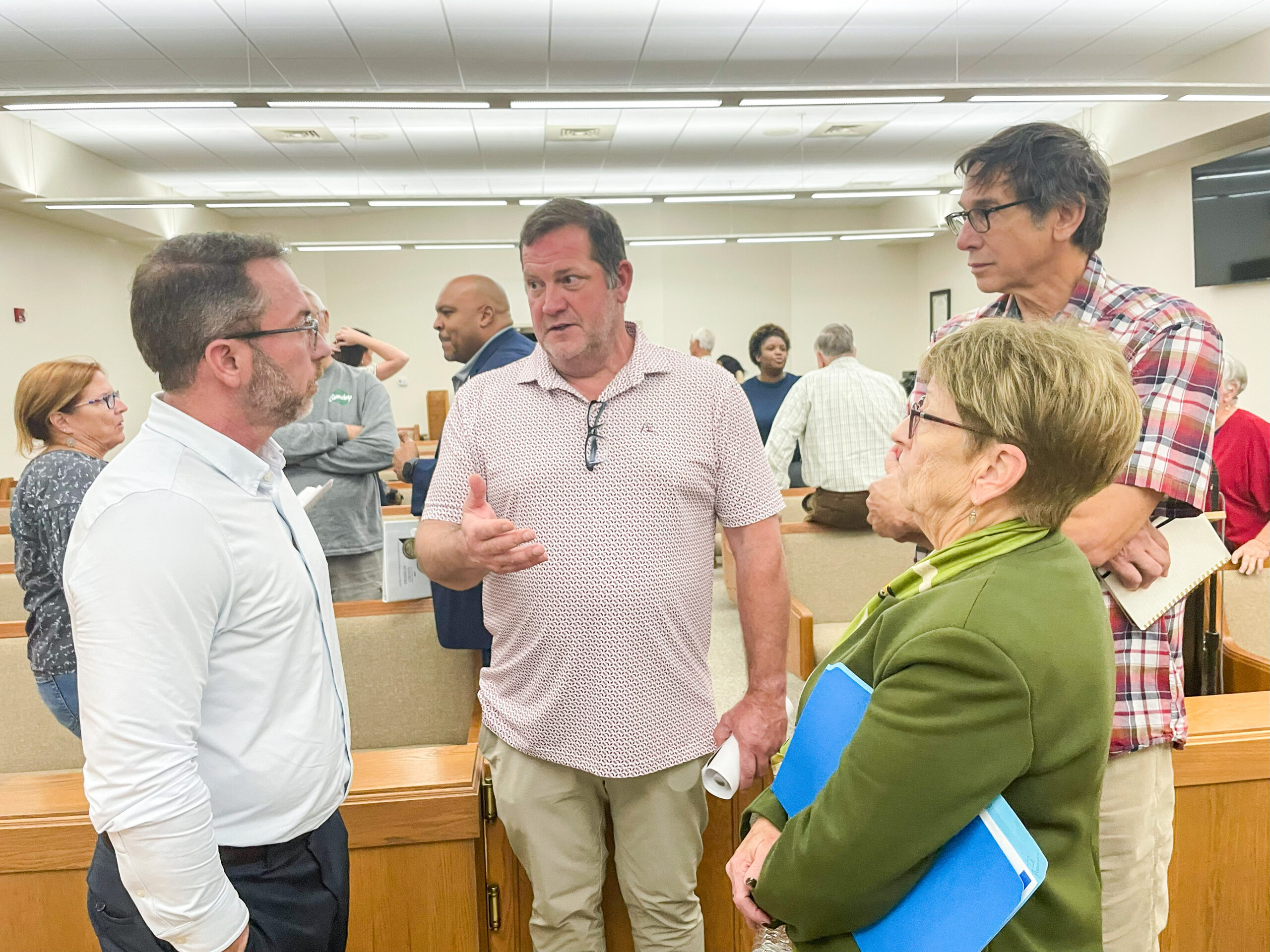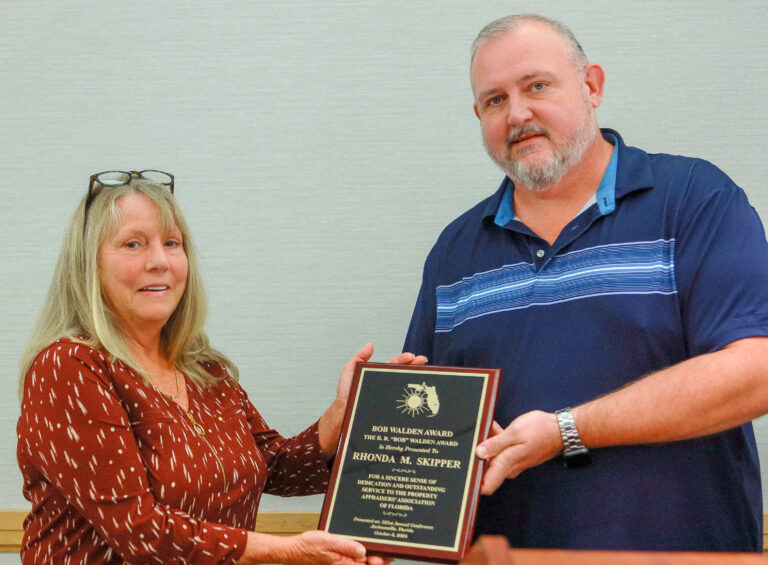County prepares push to reopen bay
A large audience greeted Franklin County’s two legislators in Tallahassee when they came last week for the annual delegation meeting, and a large number of issues of concern were presented to them.
But none was bigger and more important than the matter of reopening Apalachicola Bay to oyster harvesting in January 2026.
State Sen. Corey Simon (R-Tallahassee) and State Rep. Jason Shoaf (R-Port St. Joe) were welcomed by a unified county commission on Thursday afternoon, Feb. 6 that just two days earlier had spelled out their desire to as many of the five as possible to make an appearance at the upcoming Florida Fish and Wildlife Conservation Commission Feb. 26 and 27 in Tallahassee.
In his opening remarks, Shoaf had pledged the two legislators are “going to do everything we can” to get the bay reopened, after a five-year closure, on schedule in January.
“We need a unified voice from the oystermen,” he said. “Rarely do we find one voice. Let’s work together and get one goal, let’s get it open.
“If we don’t work together we’re going to lose it together,” Shoaf said. “It’s time to stop the infighting and let’s work together and let’s get it done.”
Commissioner Ottice Amison made it clear that on a local level, the Partnership for a Resilient Apalachicola Bay, which is a collective group of stakeholders that is a successor to the Apalachicola Bay System Initiative, has the active support of nine traditional oystermen.
“FWC (representatives) have been in meetings as well, and we have a good communication going,” he said. “This is the one unified voice right here.
“What we need to do is get this bay open,” said Amison. “If we don’t get that door open, it may not ever get opened.”
As had been voiced at the Feb. 4 commission meeting, Amison and County Commission Chairman Ricky Jones, with Commissioner Cheryl Sanders seated right alongside, celebrated Gov. Ron DeSantis’ budget recommendation of $30 million in funding to expedite FWC’s efforts to restore and recover the oyster habitat. This investment is in addition to an additional $10 million investment in the Florida Department of Environmental Protection’s budget to invest in projects that support the Apalachicola Bay Area of Critical State Concern.
“Bring it one,” said Amison. “That’s even more than we’re getting from NFWF (National Fish and Wildlife Federation).”
He said he wanted to make sure the money would go towards replenishing the oyster reefs, and not spent on additional research.
“There’s been more science and data (collection) done on this bay, and look where we are now,” Amison said. “Let’s get some material in that water and our bay will support an oyster harvest.”
Neither Simon nor Shoaf, nor the commissioners, have commented publicly on what they expect FWC staff will recommend over the next several months regarding the terms of the bay reopening. Behind the scenes elected officials have suggested that FWC may require conditions for reopening, and they have prioritized getting the bay reopened and hammering out specifics once that is done.
“This has been the biggest thing for the last five years when they blindsided all of us in closing the bay,” Shoaf said. “I do agree that there’s an appetite for more and more funding to do more and more studies.”
In his remarks that opened the meeting’s statements from the audience, Jones asked that the legislators ensure the county gets the remaining portion of money it is due to fund bear-proof trash cans.
He said the county is seeking help with the rejuvenation of Sylvester Williams Park in Apalachicola, which it has secured under a lease agreement with the city, as well as money for a new shooting range.
“The one we have has been untenable as far as a shooting range because we have a humane society on the front end,” Jones said.
He also asked that boat ramp monies flow down as needed into the county, and told legislators that the commission supports having an active work camp at the Franklin Correctional Institution that can provide low risk community inmates to the cities and county.
Jones noted that DEP has changed the permitting process of septic tanks by having that work done out of Panama City and Tallahassee. “We have some concerns about that process,” he said.
Shoaf said that he and Simon would work hard to secure that additional bear money. He said there had been “a big drop in human bear encounters” with the passage last year that empowered homeowners to use lethal force to protect human life and property from bear interactions.
“You don’t have to walk out and see trash everywhere,” he said.
Shoaf said he would look into securing funding for a new shooting range. “We need more people to learn how to use their firearms and be more accurate,” he said.
Sheriff A.J. Smith said that in light of “a huge issue with addiction and mental health,” he would like funding for a dorm to house people with severe mental health issues, from Franklin and well as surrounding counties.
“The jail that I have was not built for what we’re seeing now,” Smith said.
Simon said he thought “a regional approach to law enforcement is a great idea. We’ve really got to look at how we do law enforcement and be able to stretch those dollars.”
Superintendent Steve Lanier opened his remarks by asking who Simon was rooting for in the Super Bowl.
“Yes, I played in Philadelphia, but (Kansas City Coach) Andy Reid was my coach, and he still gives to the campaign,” said Simon, and left it at that.
Lanier said he would like to see repeal of the state law that mandated school starting times, not because he necessarily wanted to see school start earlier, but because it would give the district the maximum flexibility. “If we decide at the school district level if we want to change the times, we’ll make it work,” he said. “There are other situations that may be beneficial to others, just not in Franklin County.”
Lanier also said he would like to see a change in the law that requires the school district give a portion of its capital outlay money to the charter school.
“I’m a proponent of charter schools getting money for capital outlay,” he said. “We also want those students to go to Franklin County when they graduate.”
But, he added, the $380,000 that the district will give the Apalachicola Bay Charter School next year is the second highest in the state, and will in five years, be a more than $1 million chunk out of the district’s capital outlay coffers.
“It’s not fair to us. It may not hurt us right now but down the road it may hurt us,” Lanier said, asking that the legislators sponsor a bill that would offset this loss.
Apalachicola City Commissioner Anita Grove thanked the legislators for backing the stewardship act that laid down a framework to direct monies to Apalachicola as an Area of Critical State Concern. She asked that the legislators help in securing the $5 million authorized by the legislature.
Eastpoint resident Scott Shiver asked that the legislators consider supporting a plan to create locks at Bob Sikes Cut, that was created several years ago and now separates St. George Island from Little St. George.
“If you can’t get more water in the bowl, you gotta stop the leaks in the bay,” he said. “The cut is not a natural pass, it was created by man. If they could put locks in the cut everybody would have the best of both worlds.”
Caleb Harper, with the Alligator Point Volunteer Fire Department, asked for help in funding a combined pumper-tanker that would enable the department to muster a more immediate response to fires.
Several people spoke against allowing oil drilling in the Apalachicola River Basin, which has been given initial approval of an exploratory well in Calhoun County.
“We are on the precipice of a natural resource disaster,” said T.J. Saunders. “It’s a ticking time bomb for the health of the bay.”
Shoaf voiced opposition to the oil drilling plans. “I’m all for oil drilling, just not here,” he said. “It’s just the wrong place.”
The legislators also heard from Rob Winchester, with the Camp Gordon Johnston World War II Museum, who sought support for funding. “If you don’t teach it (history), you’re going to lose it,” he said.
The meeting closed with appearances by members of the Republican Women of the Forgotten Coast, who were critical of the legislators’ support for the Trump Act, a bill passed in the special session which further cracked down on undocumented immigration and was opposed by DeSantis in support of sterner measures.
“It sounds great in title but is very deceiving inside,” said Penny Nichols, president of the group.
Shoaf allowed them to voice their views, but asked that they conclude, because the meeting was not the time or place to voice opposition to past votes, and should rather be focused on gathering ideas on local concerns for the upcoming session.
“I get it, emotions run high and we can disagree,” said Simon. “You can disagree without being disrespectful and disagreeable.”
Shoaf said citizens will find that they can support the legislation that was passed.
“It is the way that suits our nation, that’s what we’re doing,” he said. “We love our governor and we’re working with him to come up with the best product possible.”



Meet the Editor
David Adlerstein, The Apalachicola Times’ digital editor, started with the news outlet in January 2002 as a reporter.
Prior to then, David Adlerstein began as a newspaperman with a small Boston weekly, after graduating magna cum laude from Brandeis University in Waltham, Massachusetts. He later edited the weekly Bellville Times, and as business reporter for the daily Marion Star, both not far from his hometown of Columbus, Ohio.
In 1995, he moved to South Florida, and worked as a business reporter and editor of Medical Business newspaper. In Jan. 2002, he began with the Apalachicola Times, first as reporter and later as editor, and in Oct. 2020, also began editing the Port St. Joe Star.